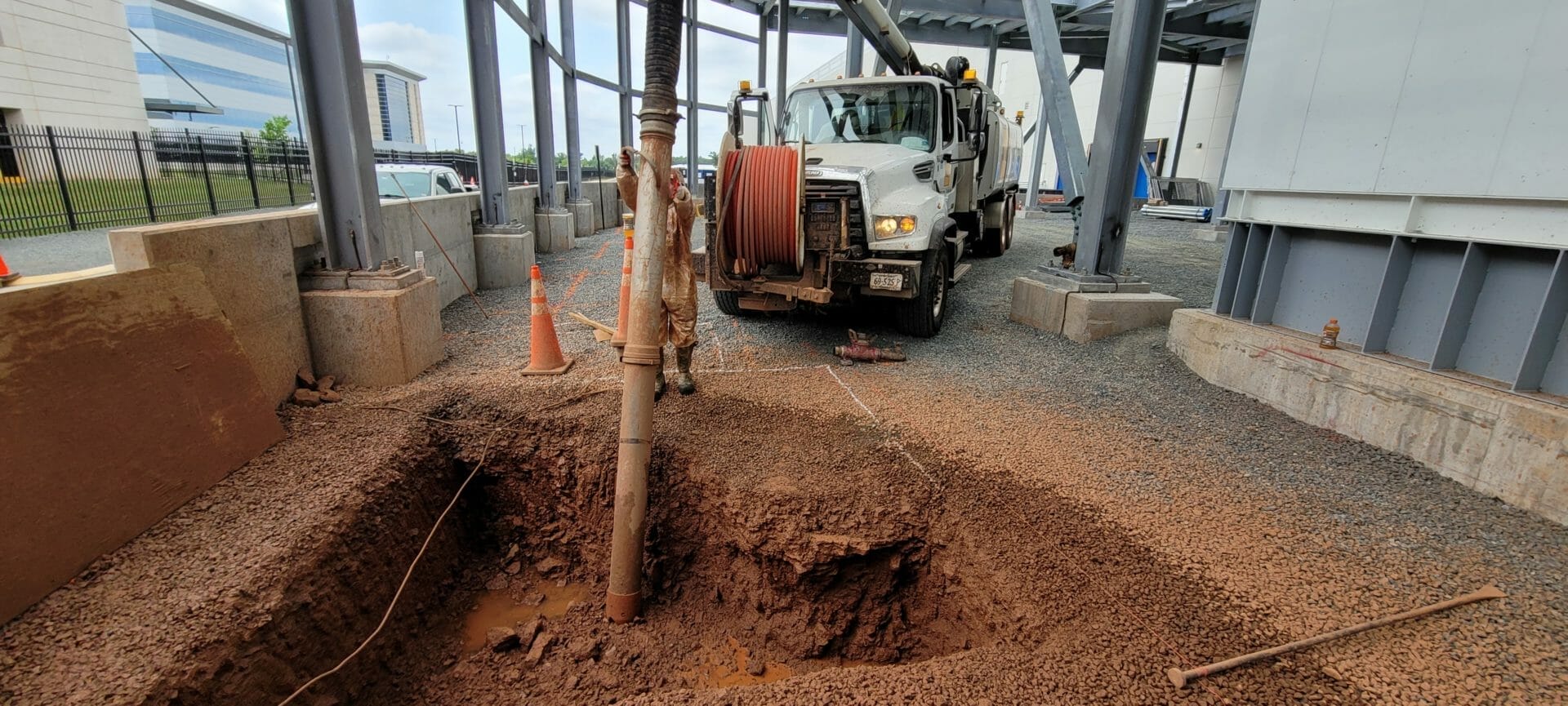Hydrovac refers to equipment and process of using high-pressure water to cut and liquefy soil in tandem with a high-volume vacuum to remove soil from an excavation site.
Safer and less invasive than traditional excavation, accidents can still occur. It doesn’t matter how many guidelines are drawn up or training provided. Experienced operators are well aware that they need to be continually mindful of all the potential hazards associated with the job. There are a number of common mistakes that can be avoided and cut down on the number of accidents that occur on worksites.
Here are Several Hydrovac Excavation Mistakes and How to Avoid Them on Job Sites:
Parking Too Near to the Dig Site
Heavy machinery should be parked at a safe distance when vacuum excavating. The area surrounding an excavation has the potential to fail due to the vibration and overall weight of the truck. A failure could result in the truck and its operator falling into a hole. Because of this, the excavation unit’s weight and size are important factors that need to be taken into consideration prior to starting work.
Before starting any hydrovac job, an operator should check the stability of the area surrounding the excavation site to ensure the equipment can be parked there safely. It’s also essential to ensure that the location of the hydrovac equipment doesn’t hinder the work of other crews on the site.
Not Using a Spotter
The lack of a spotter can cause overhead obstacles to be hit by the vacuum boom. If power lines are hit, the voltage could be sent to the chassis which could cause damage to computers or even electrocute operators.
Users should be aware of their overhead clearance in order to make sure they do not strike power lines or other infrastructure when the vacuum excavator boom is being worked. The use of a wireless remote when operating the boom gives operators the opportunity to watch the boom when moving and ensure there is complete visibility when it is in motion.
Veteran Operators Becoming Too Complacent
Veteran operators inevitably grow more relaxed when using machinery and doing their jobs, but becoming complacent can result in accidents as operators ignore possible hazards or miss out on important steps.
Careful and mindful operators are less likely to cause damage to equipment and utilities or accidentally harm others.
Tools That Have Become Worn or Broken
Operators that are in a rush may choose to make use of inadequate tools to cut corners and get the job done quicker. Yet, this is a bad idea as the use of equipment and tools for purposes for which they were not designed or still using broken or worn tools can cause equipment failure and threaten the safety of operators and their co-workers.
Equipment and tools should be regularly inspected and replaced to ensure the productivity and well-being of operators.
Not Understanding the Functions or Maximum Capacity of Equipment
The key to preventing accidents and successfully utilizing machinery is understanding the functions and maximum capacity of equipment. Operators can overestimate their machines, for example, by overloading debris tanks. They can also dangerously underestimate them, particularly in regard to suction. Do not go into overly deep holes without a trench box or proper shoring and be mindful of the capabilities, capacity, and dimensions of the machine to ensure safety.
Lack of Proper PPE
There are different hazards and requirements for all jobs. While wearing gloves, hard hats, glasses, and high visibility clothing may seem like common sense. However, not having a gas detector on appropriate jobs could be life-threatening. Operators should always be aware of what tools and equipment are required and make sure they have the proper PPE for the particular job they are undertaking.
No Procedures for Winter
It is crucial to ensure your vacuum excavator is prepared for the daily conditions when carrying out applications during cold weather. Improper cold weather procedures can cause water components to freeze, even inside closed buildings, which can result in significant damage and costly replacement expenses.
There are some manufacturers that will provide anti-freeze recirculation systems built-in to provide extra protection to water systems for traveling between worksites and being stored overnight or long-term.
Too Quick to Leave Job Site
Operators need to ensure the job site is cleaned and their vehicles are prepared for transportation. When operators are too quick to leave job sites, this can result in remotes, tools, and other accessories being lost, which can be costly and also dangerous to others.
Accidents and mistakes happen when operators are stressed and under time constraints. Using the right machine and understanding basic safety can help to avoid making these common hydrovac excavation mistakes.
At Muller, Inc., safety is our top priority. Our operators are highly trained, and our equipment is well-maintained to prevent accidents and failures. Contact us at 703-560-4040 or see our hydro excavation services page to learn more about our experienced hydro vac crews as well as the process and its applications.

